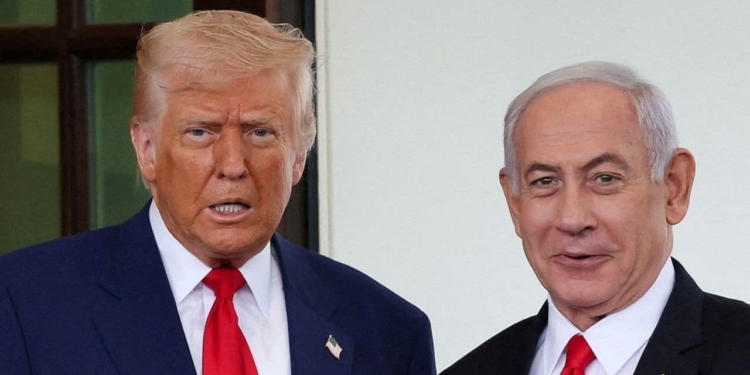Israel wants to go further than the law. Parliament passed two bills to annex the West Bank, defying the United States, which is the guarantor of its military and diplomatic support. Donald Trump replied: “Israel will do nothing with the West Bank.” Behind this veto, a truth emerges: Israel cannot do everything. Between religious ideology, political calculation and strategic dependence, this confrontation reveals a fifty-year-old impasse – that of a state which colonizes without ever being able to officially annex.
America draws the red line
Donald Trump’s return to the White House has reversed the roles: after recognizing Jerusalem as the capital of Israel in 2018, he now becomes the guardian of the status quo.
Its vice president, JD Vance, present in Jerusalem to monitor the fragile ceasefire in Gaza, described the Knesset vote as “very bad idea”.
From now on, the Israeli army must obtain American approval before any strike in the enclave.
This unprecedented situation illustrates Israel’s strategic dependence: without the green light from Washington, neither military aid nor diplomatic legitimacy can be assured.
A cruel paradox for a State which claims its sovereignty, but whose real borders are drawn in Washington more than in Jerusalem.
Between biblical promise and political calculation
For religious deputies, annexation is a spiritual duty.
MP Avi Maoz, author of the proposal, invoked “the land that God gave to Israel”.
But for Netanyahu and his party, this ideological zeal is a danger. By boycotting the vote, Likud chose caution: diplomatic isolation would be too heavy a price to pay while the United States remains the country’s vital ally.
In this internal duel, Israel looks at itself in the mirror of its own contradiction: the biblical State and the pragmatic State face each other.
The creeping annexation continues
Since 1967, the West Bank has lived under progressive occupation.
Nearly 700,000 settlers have settled in more than 250 illegal settlements, changing the map of Palestinian territory.
Separate roads, walls, checkpoints: each stone laid reinforces a silent annexation.
Even without law, the fait accompli prevails.
These new legislative proposals only ratify a reality already on the ground: colonization has become a mode of government.
And each parliamentary advance, even symbolic, prepares for a future normalization of the occupation.
Behind diplomatic calculations, the Palestinian people are paying the price of silence.
In Gaza, truces continue without rebuilding peace.
In the West Bank, entire families are expelled, land confiscated, houses bulldozed.
Each checkpoint reminds us that freedom of movement is a privilege, not a right.
For the Palestinians, the US veto is not a victory: it is a pause in dispossession, a reprieve before the next expansion.
Also read:








